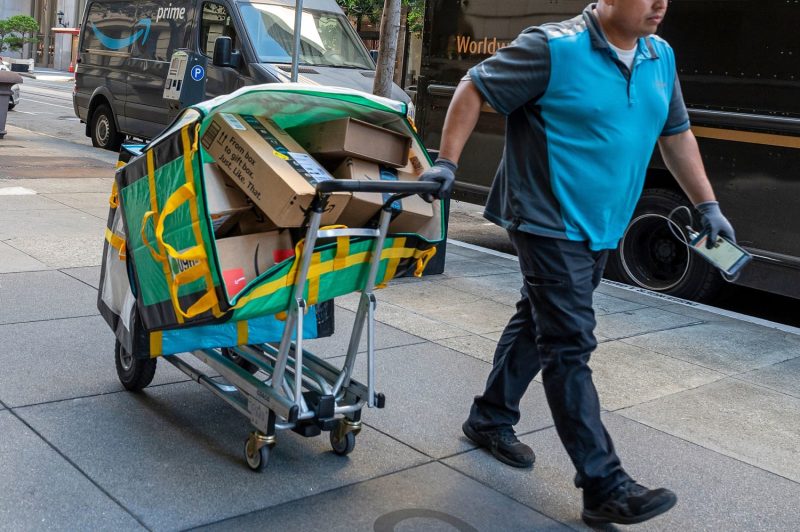Amazon Faces Legal Battle Over Alleged Prime Delivery Exclusion
The online retail giant Amazon is currently embroiled in a legal battle with the Washington, D.C. Attorney General for allegedly excluding certain neighborhoods from its popular Prime delivery service. This move has sparked outrage and concern among customers, who claim that it perpetuates a digital divide and systemic inequality in access to essential goods and services.
According to the lawsuit filed by the D.C. Attorney General, Amazon’s Prime delivery system systematically excluded neighborhoods with predominantly African American and Hispanic populations, effectively limiting their access to the expedited and convenient delivery service. This practice, if proven true, not only raises concerns about potential racial discrimination but also highlights the broader issue of disparities in access to technology and resources.
Amazon, as one of the largest and most influential e-commerce companies in the world, wields significant power in shaping consumer behavior and market dynamics. By excluding certain neighborhoods from its Prime delivery service, the company may be exacerbating existing inequalities and reinforcing social divisions based on race and socioeconomic status.
Furthermore, the lawsuit raises questions about the ethical responsibilities of tech companies and e-commerce platforms in ensuring equitable access to their services. As more aspects of everyday life move online, the digital divide becomes increasingly pronounced, with marginalized communities facing barriers to accessing essential goods and services that others take for granted.
In response to the allegations, Amazon has denied any wrongdoing and emphasized its commitment to providing convenient and reliable services to all customers. However, if the company is found to have engaged in discriminatory practices, it could face significant legal consequences and damage to its reputation as a customer-centric and socially responsible business.
The outcome of this legal battle will likely have far-reaching implications for the e-commerce industry as a whole, prompting a reevaluation of practices and policies regarding accessibility and inclusivity. As customers become more conscious of the social impact of their purchasing decisions, companies like Amazon will need to prioritize diversity, equity, and inclusion to maintain consumer trust and loyalty.
Ultimately, the case against Amazon for allegedly excluding neighborhoods from its Prime delivery service serves as a stark reminder of the complex intersection between technology, commerce, and social justice. It highlights the need for greater transparency, accountability, and ethical standards in the digital age, where access to basic amenities should not be determined by one’s zip code or demographic profile.

